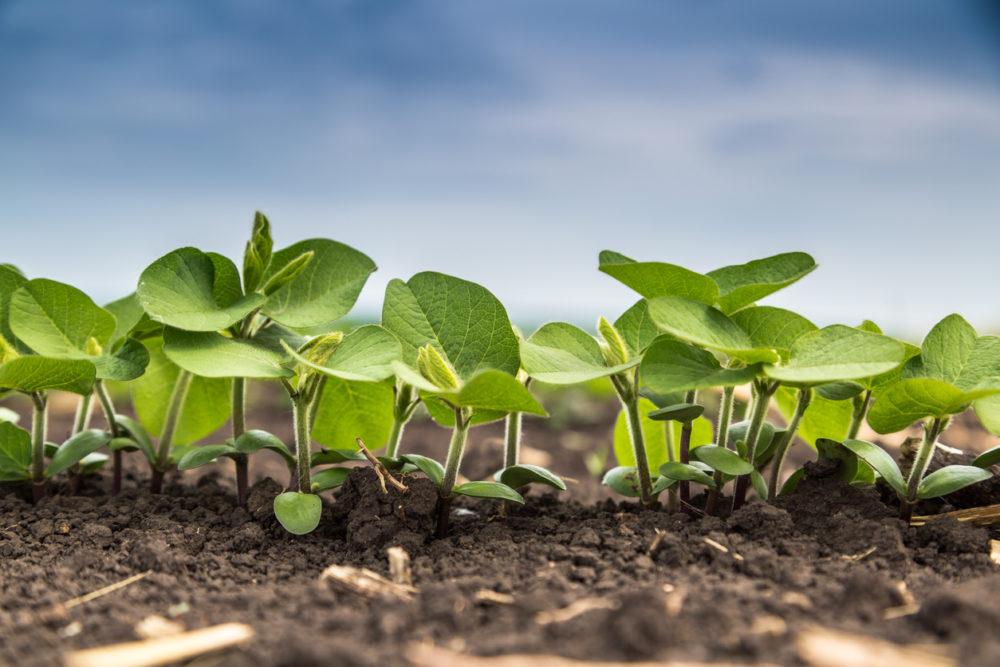- Crop health and and protection startup Texas Crop Science (TCS) has emerged from stealth mode after nearly a decade of intentionally flying under the agtech radar.
- TCS brings two different offerings to the agtech sector: a proprietary platform focused on boosting plant yield traits and one developing bio-chemicals to enhance crop protection.
- The company has also announced a partnership with plant genetics company GDM to develop high-yielding soybeans.
Building for resiliency
The US is the world’s second-largest producer of soybeans, after Brazil. The crop is used for everything from cooking oil and biofuel to animal feeds and alternative protein products for humans. In the US, soybeans are second only to corn as the leading commodity crop.
Like other US commodities, soybeans are also under threat from climate change. Large swaths of the country will see yield declines between 5% and 10% by 2030 if nothing is done to address resiliency in agriculture, according to US-based environmental advocacy nonprofit Environmental Defense Fund.
Crop resilience is precisely what TCS targets. The company may only just be emerging from stealth, but it’s been developing high-yield technology for plants for more than a decade. In research, TCS says it has increased soybean yields by “up to 34%” through more than 70 field trials carried out over seven years and nine growing seasons. Trials took place in both North and South America.
The relationship with UT Austin has proven tremendously helpful to the company’s growth.
Simon says the relationship with UT Austin is a major reason the company has done well.
“We’re probably one of the most capital efficient biotech companies out there,” says TCS CEO Simon Hiebert. “We are one of the sole funders at a lab on campus which gives us access to world class infrastructure and research capabilities without having to carry that on the balance sheet.”
For any company requiring lab infrastructure to do business, this is a huge leg up, he claims.
“We have been able to carry out all the critical R&D functions that anybody would expect, without having to really carry that financial burden. So that was really huge for us as we develop the data to troubleshoot and learn new things. We spent a year on cotton and it turns out that wasn’t really going to drive [the company]. We could pivot and didn’t have the financial burden hanging over our head.”
From cotton to soy
Texas Crop Science started at the University of Texas, Austin when Hiebert was still a student.
While exploring the role of the apyrases enzyme in plants, researchers at UT Austin pinpointed one apyrase in particular that regulates cellular energy management and plays a huge role in driving plant growth. Or to put it more plainly, managing and manipulating the apyrase can lead to bigger yields.
Hiebert saw the potential right away and formed a company, originally called CottonGen. As the name suggests, the new company started out trying to improve cotton yields.
“There was some real compelling data about the elongation of cotton fibers,” he tells AFN. “And here we were in Texas, where it seemed like everybody was growing cotton.”
The team changed its mind after a meeting with “a pretty big VC with a lot of experience in the space.”
“One of the key takeaways from that meeting was, if you’re going to try and move a transgenic trait forward, you have to have it in soybeans and corn. That’s where the money is,” says Hiebert. “If you have either of those, everybody will assume they can make [the technology] work with cotton or canola, your lower-tier market opportunities for transgenic crops. But the inverse of that scenario is not true.”
Cotton, he says, counts for roughly 10 million across in the US on “a really, really good year.” Soybeans and corn span 90 acres regularly in the United States alone.
“We listened, we learned and we immediately started working in soybeans,” he says.
One company name change later, TCS was born and two “commercially viable product families” emerged, one for yield and another for a chemical enhancer that can boost fungicide and herbicide performance.
“I don’t know of any other company that is actively pursuing this area in terms of gene targets,” says Hiebert. “It’s a similar story with the chemistry. It all came from this one body of inquiry around apyrase and functionality.”
TCS meets GDM
TCS will use its work in boosting soybean yields in a partnership with GDM to produce high-yielding soybean varieties for farmers.
TCS will incorporate its technology into GDM’s soybean genetics using gene-editing and advanced plant breeding techniques.
The end goal of the partnership is to deliver soybeans that can produce higher yields in a variety of conditions, from normal to stress-impacted ones such as drought. Hiebert calls these “climate-stable yields” and says the partnership directly addresses “the twin challenges of global demand for protein and climate instability.”
The potential reach here is huge: GDM’s genetics account for more than 40% of the global market for soybean production. The company operates 16 breeding stations globally in addition to 700 testing locations, and more than 1.5 million testing plots per year.
Hiebert calls the partnership between Texas Crop Science and GDM “a powerful combination to create a stream of soybean products that will benefit farmers with increased and climate-stable yields, while also benefitting consumers through increased global food security and reduced environmental impact.”





